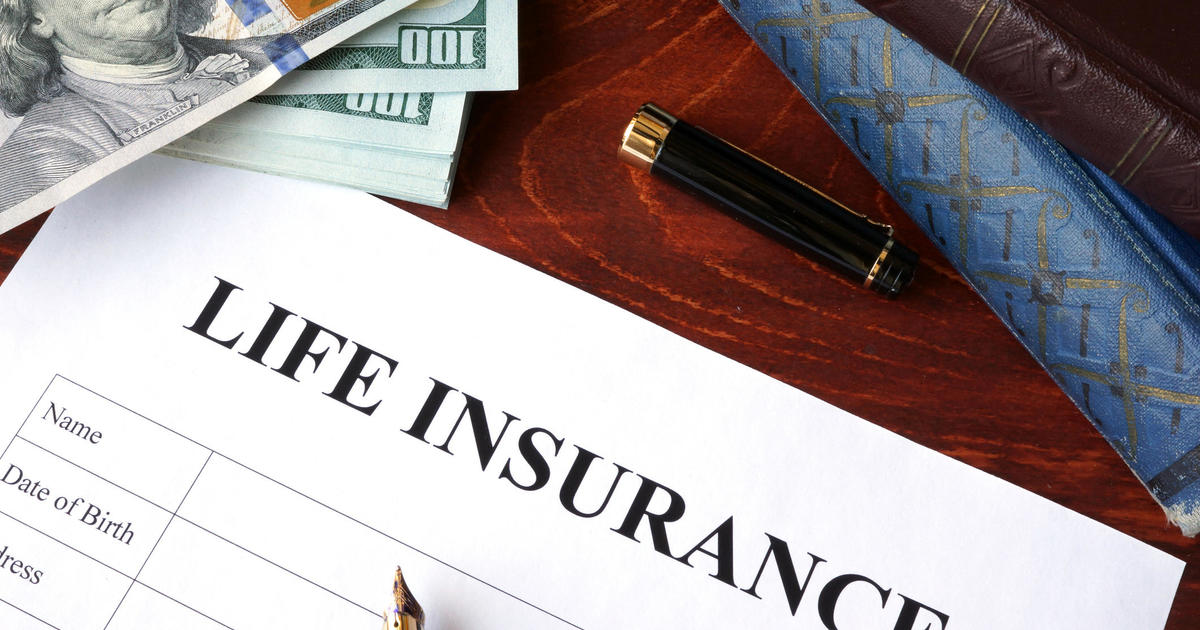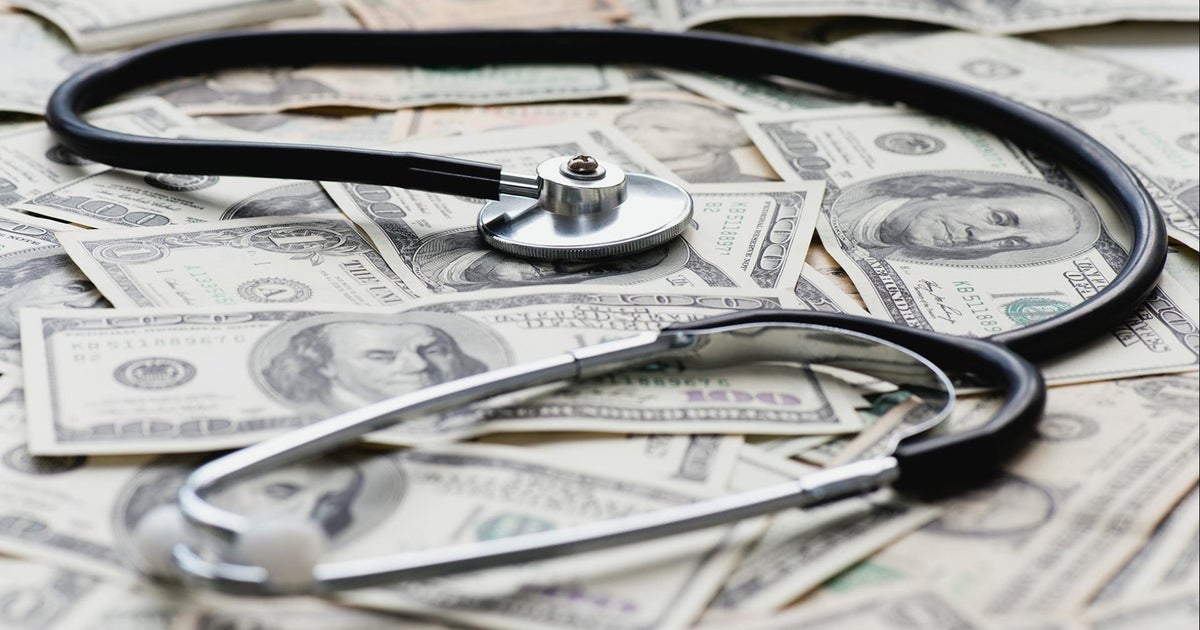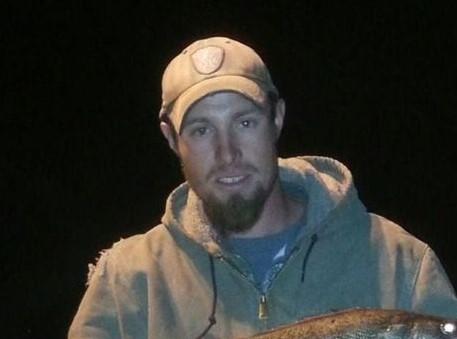CBS News
Can you cash out your life insurance policy?

Getty Images/iStockphoto
Feeling the added pressures of inflation and overall challenging economic conditions on their finances, many Americans may be looking for some added financial assistance. For some, that could mean tapping into their life insurance policies for cash.
Before you make the choice to cash out your life insurance, it’s important to understand all of the details. Then, you can weigh both the advantages and disadvantages of this strategy to determine if getting cash out of your life insurance policy makes sense for you.
If you don’t have life insurance, or want to increase the amount you currently have, start by getting a free price quote now.
Can you cash out your life insurance?
Depending on the type of insurance you carry, you may have a few options to access cash from your life insurance.
Access a permanent life insurance policy
If you have a permanent life insurance policy, you may be able to dip into your policy’s cash value account. Whole life, universal life and variable universal life are types of permanent life insurance policies that never expire and maintain cash value in addition to a death benefit.
By contrast, term life insurance is in effect for a limited term, such as 10, 20 or 30 years. The policy has a death benefit which pays beneficiaries if the policyholder passes away during the term. But one of the most significant differences between whole and term life insurance is that the latter policy does not have a cash value account, so there’s no cash for policyholders to access.
Taking money from your cash value account could make sense if you’re in a strong financial position and your beneficiaries will be taken care of after your death. On the other hand, if you have loved ones who rely on you financially, it’s probably not wise to pull away the financial safety net your life insurance provides.
Get a free price estimate today to see what life insurance protections you’re eligible for.
Surrender your life insurance policy
This option allows you to withdraw the entire cash value of your life insurance policy, which in turn surrenders your coverage. You’ll receive all the money you’ve paid towards your coverage and any interest you’ve earned. Again, you should make sure you’re in good financial standing and your beneficiaries are covered before you decide on this option.
Your insurer also considers any unpaid loans or premiums on your account and you could owe surrender fees and federal taxes.
Make a withdrawal from your policy
Another potential option is to withdraw money from your life insurance policy’s cash value account. While these withdrawals are tax-free up to the amount you’ve already paid towards your premiums, any amount you withdraw that exceeds what you’ve already paid is taxable.
Borrow from your policy
Your life insurance policy may allow you to take out a loan on the cash value. Getting a loan from your insurance policy may be easier than through a bank or credit union, because there is typically no credit check and more flexible repayment terms. But remember: Any amount you owe on the loan’s outstanding principal and interest is deducted from the death benefit when you die.
Cover your policy’s monthly payments
If you need cash to meet other expenses, you may have the option of drawing on your cash value account to cover the policy premium. This option can help you get through a tough financial spot without forfeiting your policy. Remember, if you end up depleting your cash value, your insurance could lapse, thus ending your coverage.
Pros and cons of cashing out your life insurance
Weigh the advantages and disadvantages of getting cash from your life insurance to help you decide if it makes sense for you.
Pros of taking out cash from a life insurance policy
- It’s simple: Policy loans generally don’t require a loan application or credit check because the cash value in your account serves as collateral on the loan. You can repay your loan on your own schedule, and your payments go back into your policy.
- Low interest rates: The interest rate you receive on a cash value loan can vary depending on whether your loan is fixed or variable. Typically, interest rates on life insurance loans range from 5% to 8%, which is far better than credit card interest rates and even slightly better than personal loan rates. Of course, you won’t pay interest if you simply withdraw the money, but that lowers your cash value amount, which can take a long time to rebuild.
- No impact on credit: Taking out a mortgage or a personal loan could cause a temporary minor drop in your credit score. That’s not the case with a life insurance loan, since your eligibility is primarily based on the amount of your cash value, not your creditworthiness.
Cons of taking out cash from a life insurance policy
- A lower death benefit: Withdrawing funds reduces the amount of your cash value and your policy’s death benefit. Similarly, any loan amount you don’t pay back is subtracted from the death benefit.
- Withdrawal or loan may not be an option: You can’t access money from your whole life policy unless there is sufficient cash value in your account, which takes time to build. If you need money shortly after enrolling in your policy, you may not have the accumulated funds to borrow or withdraw. Rules regarding how much money you can borrow will also vary by insurer.
- Your insurance policy could lapse: When you pay back a policy loan, you must pay interest on the borrowed amount. If you borrow a substantial amount and accrue interest that eclipses your cash balance, your policy could lapse and be closed by your insurer. In that case, your loan balance could be considered taxable income, leaving you accountable for a potentially large tax bill.
Alternatives to cashing out life insurance
If you don’t want to use your life insurance for cash, consider these alternatives. Using one of these options may allow you the money you need without risking your coverage.
- Personal loan: Depending on your credit, you may qualify for a personal loan with a competitive interest rate.
- 0% introductory APR credit card: Some credit cards offer the chance to accrue no interest for a given period (typically 12 to 18 months). Just be sure you can pay off the credit card balance before the introductory period expires and you start taking on interest at the regular rate.
- Home equity loan: Home equity loans allow you to access your home’s equity for cash, but you’ll likely be on the hook for closing costs that range from 2% to 5% of the loan amount. Educate yourself about the potential risks of a home equity loan, including the risk of a foreclosure on your home if you fail to make your payments.
- Cash-out refinancing: If eligible, you can take out a new mortgage loan larger than the amount you currently owe on your home, then pay the initial loan and take the difference between the two as cash. This may be an alternative way to access a large sum of cash.
- Reverse mortgages: A reverse mortgage permits older homeowners (62 and above) who have completely paid off or paid off most of their mortgage to take out a portion of their home’s equity. This would qualify as tax-free income, and you could wind up getting a substantial sum if you don’t owe much and/or your home’s value has risen since you initially purchased it.
Whether you decide to get cash out from your life insurance policy or not, take steps to build an emergency fund that covers your living expenses for at least three to six months. A sufficient emergency fund can help cover a financial crisis without having to borrow money from your life insurance policy or elsewhere.
CBS News
A 911 caller reported his friend was killed by a bear in his tent. It was actually a brutal homicide.

Authorities in Montana say a 911 caller discovered his friend dead in a tent in what appeared to have been a fatal bear attack — but officials soon discovered the camper was actually the victim of a brutal murder.
Dustin Kjersem, 35, was found dead in his tent on Saturday morning along Moose Creek Road north of Big Sky, Montana, Gallatin County Sheriff Dan Springer said at news conference Wednesday. A friend who was supposed to have met Kjersem went searching for him when he didn’t show up as scheduled on Friday.
The friend ultimately discovered Kjersem’s body in a tent at a makeshift campsite and called 911, telling responders the death appeared to have been caused by a bear attack, the sheriff’s office said.
An agent with the Montana Fish, Wildlife and Parks agency who visited the site, however, found no signs of bear activity, and investigators said they soon found evidence of a “vicious attack,” which is being investigated as a homicide.
Gallatin County Sheriff’s Office
Kjersem, who was last seen on Thursday afternoon, sustained “multiple chop wounds,” including to his skull, an autopsy showed.
“He was brutally killed at his campsite and we need your help,” Springer said, adding that his detectives were working “all hours of day and night to find his killer.”
No suspects have been identified, and Springer said the remote area of the crime scene, where there is no cell phone service, was making the investigation more difficult than most cases.
“People have asked me if there’s a threat to this community and the answer is we don’t know. We don’t have enough information to know at this time” he said.
The sheriff urged residents to be careful.
“We do know that someone was out there who killed someone in a very heinous way so if you’re out in the woods you need to be paying attention, you need to remain vigilant,” Springer said.
Kjersem was driving a black 2013 Ford F-150 with a black topper and a silver aluminum ladder rack, and police have asked the public to come forward with any information they might have.
Gallatin County Sheriff’s Office
“Think of the whole canyon,” Captain Nathan Kamerman said at the news conference. “If you saw something weird in the canyon area, or in town with his truck, please reach out to us.”
Kjersem’s sister Jillian Price called her brother a skilled tradesman and a loving father.
“I asked our community to please find out who did this,” she said. “There is someone in our valley who is capable of truly heinous things.”
CBS News
Woman sentenced for killing pregnant woman, hoping to claim baby was hers

Springfield, Mo. — A Missouri woman has been sentenced to two life terms in prison for killing a pregnant Arkansas woman and trying to pass off the dead woman’s fetus as her own stillborn baby.
Amber Waterman, 44, of Pineville, Missouri, is not eligible for parole under the sentence ordered Tuesday, the U.S. Attorney’s Office said. She pleaded guilty in July to kidnapping resulting in death and causing the death of a child in utero.
In her plea, Waterman admitted that she used a false name to contact Ashley Bush of Siloam Springs, Arkansas, on Facebook. Bush, 33, was about 31 weeks pregnant at the time.
Federal prosecutors said Waterman and Bush agreed to meet at an Arkansas convenience store on Oct. 31, 2022. Waterman said she would help Bush get a job, but instead she drove Bush to her own home in Pineville.
Hours later, first responders rushed to a store in Pineville after getting a report that a baby was not breathing. The baby was pronounced dead.
Waterman at first claimed she had given birth to the baby in a truck while on the way to the hospital. In her plea, she admitted the baby was Bush’s.
An autopsy indicated that Bush, who was also the mother of three other children, died as a result of penetrating trauma of the torso. The baby, Valkyrie Willis, died in utero, prosecutors said.
Waterman’s husband, Jamie Waterman, 44, pleaded guilty Tuesday to one count of being an accessory after the fact to the kidnapping resulting in death.
Charging documents say he helped wrap Bush’s body in a tarp, burn it and then move the remains to another location.
He could get up to 15 years in federal prison without parole, the U.S. Attorney’s Office said.
At Amber Waterman’s sentencing, the judge said he couldn’t impose a sentence that would be sufficient in this case, saying Amber Waterman’s crime was a “new level of graphic,” CBS Springfield affiliate KOLR-TV reports.
Prosecutors also spoke during the proceedings and said the pain caused by Amber Waterman would span generations, while her defense attorneys declined to speak, saying they preferred not to due a case pending against her in Arkansas.
According to KLOR, one Bush family member said during the sentencing hearing that she prayed “suffering comes back tenfold” to Amber Waterman, and another said she is the “face of Satan” and “has a black soul.”
CBS News
Harris backs slashing medical debt. Trump’s “concepts” worry advocates.

Patient and consumer advocates are looking to Kamala Harris to accelerate federal efforts to help people struggling with medical debt if she prevails in next month’s presidential election.
And they see the vice president and Democratic nominee as the best hope for preserving Americans’ access to health insurance. Comprehensive coverage that limits patients’ out-of-pocket costs offers the best defense against going into debt, experts say.
The Biden administration has expanded financial protections for patients, including a landmark proposal by the Consumer Financial Protection Bureau to remove medical debt from consumer credit reports.
In 2022, President Joe Biden also signed the Inflation Reduction Act, which limits how much Medicare enrollees must pay out-of-pocket for prescription drugs, including a $35-a-month cap on insulin. And in statehouses across the country, Democrats and Republicans have been quietly working together to enact laws to rein in debt collectors.
But advocates say the federal government could do more to address a problem that burdens 100 million Americans, forcing many to take on extra work, give up their homes, and cut spending on food and other essentials.
“Biden and Harris have done more to tackle the medical debt crisis in this country than any other administration,” said Mona Shah, senior director of policy and strategy at Community Catalyst, a nonprofit that has led national efforts to strengthen protections against medical debt. “But there is more that needs to be done and should be a top priority for the next Congress and administration.”
At the same time, patient advocates fear that if former President Donald Trump wins a second term, he will weaken insurance protections by allowing states to cut their Medicaid programs or by scaling back federal aid to help Americans buy health insurance. That would put millions of people at greater risk of sinking into debt if they get sick.
In his first term, Trump and congressional Republicans in 2017 tried to repeal the Affordable Care Act, a move that independent analysts concluded would have stripped health coverage from millions of Americans and driven up costs for people with preexisting medical conditions, such as diabetes and cancer.
Trump and his GOP allies continue to attack the ACA, and the former president has said he wants to roll back the Inflation Reduction Act, which also includes aid to help low- and middle-income Americans buy health insurance.
“People will face a wave of medical debt from paying premiums and prescription drug prices,” said Anthony Wright, executive director of Families USA, a consumer group that has backed federal health protections. “Patients and the public should be concerned.”
The Trump campaign did not respond to inquiries about its health care agenda. And the former president doesn’t typically discuss health care or medical debt on the campaign trail, though he said at last month’s debate he had “concepts of a plan” to improve the ACA. Trump hasn’t offered specifics.
Harris has repeatedly pledged to protect the ACA and renew expanded subsidies for monthly insurance premiums created by the Inflation Reduction Act. That aid is slated to expire next year.
The vice president has also voiced support for more government spending to buy and retire old medical debts for patients. In recent years, a number of states and cities have purchased medical debt on behalf of their residents.
These efforts have relieved debt for hundreds of thousands of people, though many patient and consumer advocates say retiring old debt is at best a short-term solution, as patients will continue to run up bills they cannot pay without more substantive action.
“It’s a boat with a hole in it,” said Katie Berge, a lobbyist for the Leukemia & Lymphoma Society. The patient group was among more than 50 organizations that last year sent letters to the Biden administration urging federal agencies to take more aggressive steps to protect Americans from medical debt.
“Medical debt is no longer a niche issue,” said Kirsten Sloan, who works on federal policy for the American Cancer Society’s Cancer Action Network. “It is key to the economic well-being of millions of Americans.”
The Consumer Financial Protection Bureau is developing regulations that would bar medical bills from consumer credit reports, which would boost credit scores and make it easier for millions of Americans to rent an apartment, get a job, or secure a car loan.
Harris, who has called medical debt “critical to the financial health and well-being of millions of Americans,” enthusiastically backed the proposed rule. “No one should be denied access to economic opportunity simply because they experienced a medical emergency,” she said in June.
Harris’ running mate, Minnesota Gov. Tim Walz, who has said his own family struggled with medical debt when he was young, signed a state law in June cracking down on debt collection.
CFPB officials said the regulations would be finalized early next year. Trump hasn’t indicated if he’d follow through on the medical debt protections. In his first term, the CFPB did little to address medical debt, and congressional Republicans have long criticized the regulatory agency.
If Harris prevails, many consumer groups want the CFPB to crack down even further, including tightening oversight of medical credit cards and other financial products that hospitals and other medical providers have started pushing on patients. These loans lock people into interest payments on top of their medical debt.
“We are seeing a variety of new medical financial products,” said April Kuehnhoff, a senior attorney at the National Consumer Law Center. “These can raise new concerns about consumer protections, and it is critical for the CFPB and other regulators to monitor these companies.”
Some advocates want other federal agencies to get involved, as well.
This includes the mammoth Health and Human Services Department, which controls hundreds of billions of dollars through the Medicare and Medicaid programs. That money gives the federal government enormous leverage over hospitals and other medical providers.
Thus far, the Biden administration hasn’t used that leverage to tackle medical debt.
But in a potential preview of future actions, state leaders in North Carolina recently won federal approval for a medical debt initiative that will make hospitals take steps to alleviate patient debts in exchange for government aid. Harris praised the initiative.
KFF Health News is a national newsroom that produces in-depth journalism about health issues and is one of the core operating programs at KFF—an independent source of health policy research, polling, and journalism. Learn more about KFF.
Subscribe to KFF Health News’ free Morning Briefing.






GIPHY App Key not set. Please check settings